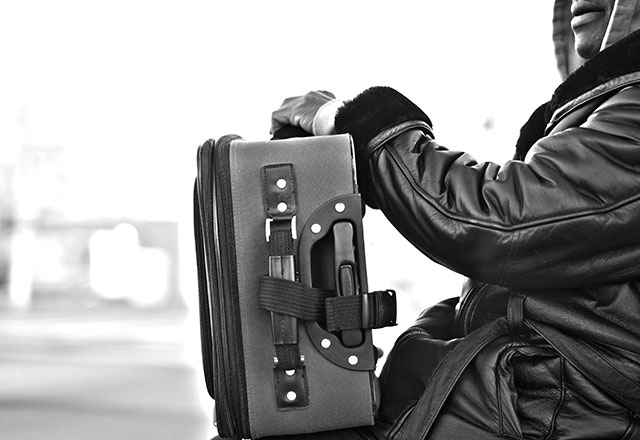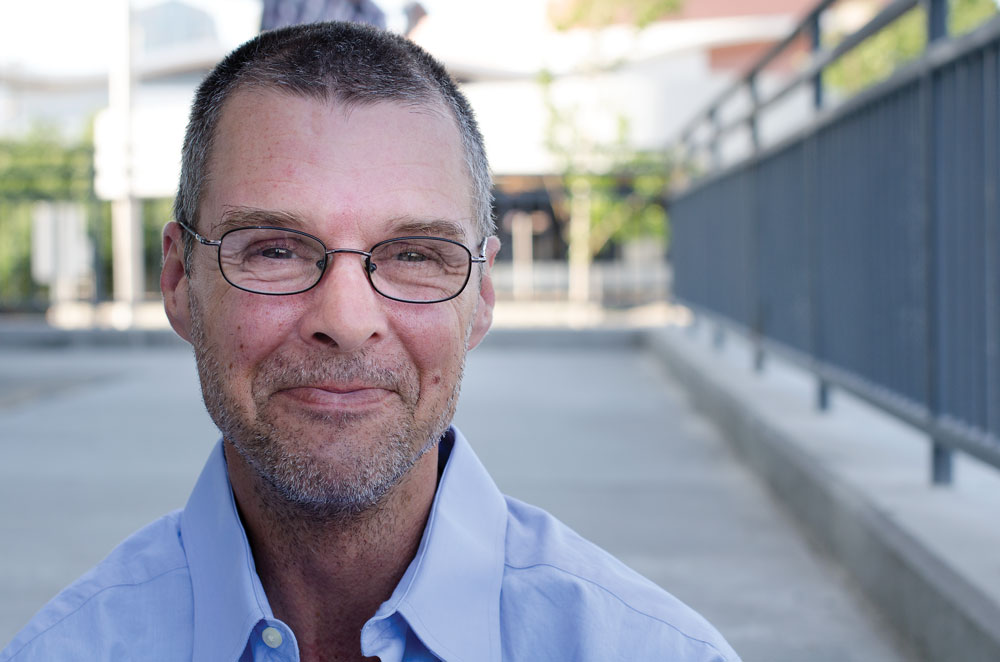It’s a cold, dreary day in January. Lisa* can’t sleep and is wide-awake, staring at the ceiling, listening to the sounds of 29 other women sleeping in the dorm room where she stays. She’s not looking forward to the trip outside to her locker after she changes clothes. This is where she stores the two pairs of shoes she has, in addition to the one pair she is wearing… and everything else she owns.
“I spend most of the day on my feet,” says Lisa. “I carry my purse and inside are the necessities—my glasses, cell phone, pad of paper, pen, earplugs, toothbrush, hand sanitizer, birth certificate, important mail, and toilet paper. The rest of my belongings are stored in a locker at the Mission. The locker is small, but I’m thankful for it. Before I got a locker, I carried everything in a small suitcase that I took with me everywhere—otherwise it might get stolen.”
These days, she spends most of her time waiting. Lisa leaves the Mission at 7:00 a.m. in search of an apartment. Complicated by having a felony on her record, Lisa is excluded from many apartment complexes. She’s determined to clear her record, which would open up more opportunities, but it requires many trips to the courthouse and appointments with legal aid.
“I have a car, but the brakes are out,” shares Lisa. “I don’t have the money to get them fixed right now, so I walk everywhere. I would take the bus, but it just takes so long to get anywhere. Walking seems to be faster and it definitely makes me feel better.”
Lisa returns to the Mission in the afternoons for dinner and a safe place to sleep at night.
“When you’re homeless there is no real place to rest, ever,” says Lisa. “Always carrying your possessions, never having privacy, every service given to you requires waiting in a line to receive it. It can be stressful. The worst part is when you stand in line for an hour waiting for help, only to find once you get to the front, you were standing in the wrong line. It is easy to lose hope.”
Still, Lisa considers herself blessed. “While there are some challenges to staying at the Mission, it’s better than the alternative. Living on the streets is rough. And sometimes staying with family can be even more dangerous. I’ve got a much better chance of success staying at the Mission.”
Consider all that it would take for a woman like Lisa to overcome her homelessness. Finding gainful employment would require she be well rested. In order to perform the work assigned would need to shower, wear clean clothes every day, secure reliable transportation, and be able to feed herself regularly, etc. And then to maintain this while sleeping on the streets, or even in a shelter, not just until the first paycheck comes, but for three months or more while she tries to save up enough money to move into an apartment. Add to this the difficulties in securing an apartment when potential landlords ask for a list of previous residences, and references, and a credit check. It’s overwhelming.
Despite the challenges, Lisa doesn’t want to be thought of as a homeless person, just as herself. She’s a mom, a sister, she likes to play basketball and watch movies, and thinks laughter is the best medicine for anything.
With your help, Lisa has a safe place to sleep, shoes to wear, and food to eat. But she still needs your help if she wants to move out of homelessness. As you talk a walk in her shoes, realize there are many women just like Lisa, who are struggling and need your help. For now, Lisa is looking forward to the day she can have keys to her own place and a closet instead of a locker—and with your help, hopefully this day will be sooner rather than later.
*Lisa’s name has been changed to protect her privacy.




